    |
 |
|
Truly Legendary Radio Personality Carl Reese has been broadcasting in Cleveland radio for over 50 years, a feat which recently brought him into the very elite Ohio Radio Hall of Fame. He was, in fact, the very first recipient of the Hall's Legendary Personality Award. Cleveland Magazine has hailed him as one of the 30 most interesting people for the year 2003. He has one of those voices that makes you want to listen to what he has to say. He is at the same time authoritative, reassuring and friendly. He defines success as "being able to digest breakfast without getting sick and living at ease in a comfortable world" There is no question of Carl Reese's success. He is a living legend, with a very interesting story. Carl knew from early on that he wanted to be in radio. Network radio at that time was not just music. The shows included live dramas, symphonies, classical music and of course, news commentaries. He knew that to be in radio you had to be the best - there was no "close enough" or "almost" in the radio world. So he set out to enter this magical world of radio knowing full well it would not be easy. He made a decision in the early 1930's to stay in the Cleveland market, rather than head off to Los Angeles, Chicago or New York. Who knows where those cities may have taken him, but he has never regretted his decision to stay in Cleveland. As a young man in his teens, Carl entered and won a contest for a Teen Radio Show, but his adult voice resulted in his disqualification. It was also in 1948 that he joined the Army and went to Europe. When he got to Germany he knew he wanted to try for a position on the Armed Forces Network (AFN), but everyone told him not to even bother trying. There were over 500 people trying for the one job and Carl at barely age 17 was much too young. However, when he docked in Germany he met a man wearing an AFN patch on his uniform. Through an amazing series of events he was able to get into the American Forces Network (AFN) instead of being shipped to Berlin. Here his talents were put to good use as an announcer as well as an actor and narrator in radio drama. He also had the chance to do a "piano show" where people played the piano and Carl talked and broadcast Big Swing Bands, which copied the American style that was so popular back home. It was not an easy transition coming back home to Akron, Ohio. In 1950 he was hired by WJER in Ohio as a morning disc jockey but only stayed until 1951 when he went to WCVE in Akron. He found at these smaller stations his job was also to produce the shows and act as engineer as well - much different than the Armed Forces Radio productions he was used to. By this time Carl was married and had the first of his six children. Almost immediately upon getting the job at WCVE Carl heard about an audition at WTAM. He rode the bus from Akron to Cleveland where the people liked him but wanted more experience. "Keep in touch" they told him and he went back to Akron. 1952 brought Union problems to the small Akron station. A Union vote was taken, and the Union lost. One by one the owner fired the people involved in the election and in July Carl was let go. He was not in good financial shape at this time, and knew he had to find work as soon as possible, so he called WTAM again. This time the response was a little different. They needed a relief announcer in radio and television. He was hired to start the next day and his duties would also include news and sports and 2 hours of television announcing. It was not much help in the finance department because he started at $57.50 a week. "Talk about inflation if you want, but $57.00 then was as low as $57.00 is today" He supplemented his income with TV commercials, which of course he had to memorize since there was no such thing as a teleprompter in those days.
This was a big-time station, the kind of station he had always dreamed of. 60% of the entire radio audience belonged to WERE and he was now part of it. Morning, noon and night brought in celebrities and people with records looking for airtime. The only downside for Carl was his hours - he worked the night shift for 5 ½ years before being switched to daytime. He worked in a highly charged atmosphere because of the booming record business. Radio personalities working at the same time included such memorable names as Bill Randle, Phil McLain, Tommy Edwards and Jimmy Dudley. Among the celebrities he met, Carl includes in his favorites: Kim Novak, Jimmy Cagney, Les Paul, Mary Ford, Pat Boone, Eleanor Roosevelt, Nat King Cole, Perry Como, Johnny Cash, Connie Francis, Andy Williams, Henry Mancini and, well, the list goes on and on. "99% of the people I met were just wonderful. Really nice people. The other 1%, were let's say less than nice. They were the ones with the attitude."
Working at WHK he wound up doing some reporting and journalistic pieces, which was not really interesting to him. "My end of the business was much friendlier" He resigned from WHK and did freelance work for about 6 months. He was hired by Storer Broadcasting who owned WJW (Radio 850 and TV8) He went on to do music and talk radio for 18 years (1964-1982). He met Allan Douglas the creator and first host (yes, even before Fred Griffith) of Morning Exchange, who he regards as "one of the brightest people I've ever met". From 1965-1970 WJW earned 25% of the radio dollars, a huge percentage for one station. But come 1970 FM radio started entering the picture and things began to change. Carl passed up opportunities to go to FM - he was never interested in that format. From WJW he went on to 1260 WBBG doing "The Music of Your Life". During this time he was also doing many television commercials for national and local sponsors. 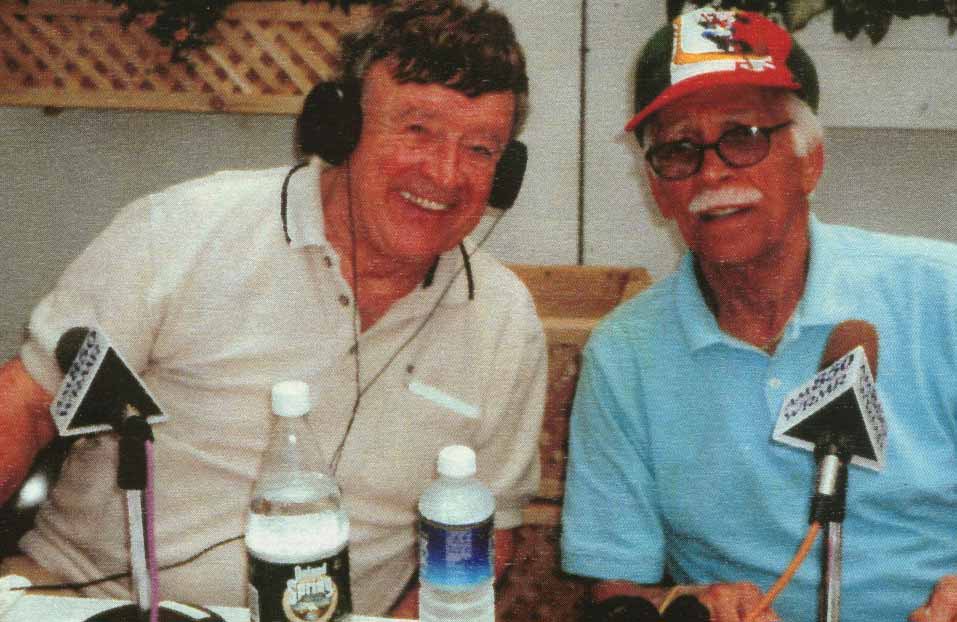 1989 brought him to WRMR (Am 850) and in 2001 he went to WCLV 1420 as an afternoon disc jockey - where he can still be found today. While all of this was going on Carl and his wife had six children, but their marriage ultimately ended in divorce in 1970. After being single for more than 20 years Carl married his lovely wife, Lorraine in 1994. Lorraine had listened to Carl on the radio, but kept her radio under her pillow so her father wouldn't know she was listening. She too had been divorced for more than twenty years and had teenage children of her own. They spent their honeymoon in Hawaii, but an encounter with a tropical storm left Lorraine with pneumonia.
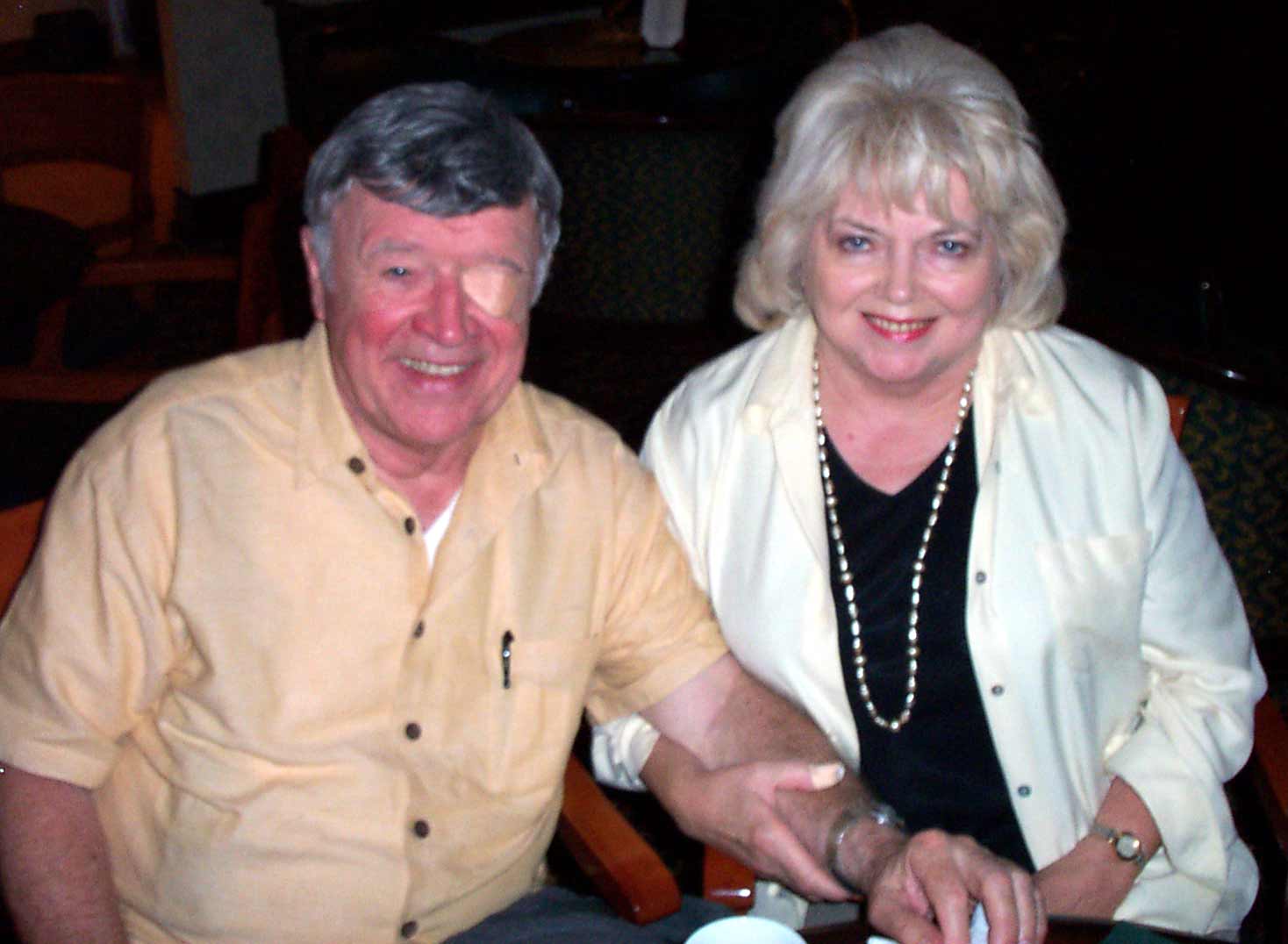 Now they travel together as tour leaders to such exotic places as the Mediterranean, Turkey, Venice, North Africa, Russia and Scandinavia. WJW was one of the first stations to do regular sponsored trips. In 1965 Carl took 95 people on a cruise, including his mother. (Carl's mother is very much alive today, at 95 years of age). Carl remained friends with many of the people he met. Carol Burnett and Tim Conway stay close. His time in talk radio has also afforded him the opportunity to meet a multitude of psychiatrists, historians, medical people and samplings of all aspects of human nature. One of the most memorable was and interview with British witch and astrologer, Sybil Leek. Carl does not believe in violence. He believes "men and women are at their lowest ebb when we want to hurt someone". He is a strong believer in being kind to people, because over the years so many people have been kind to him. "I was always coming up against a wall" he recalls " but somehow the wall would always turn into a door with a wonderful new adventure on the other side. This is in great part because of the wonderful people I met along the way" On April 29, 2001 Carl Reese got up early to go and visit some relatives. He started feeling dizzy. He became sick to his stomach. He couldn't focus his eyes. Lorraine called 911 and he was taken to the hospital right in the chair he had been sitting in. He was the lucky recipient of a TPA shot - a drug only effective for people meeting many varied criteria, one of which is the stroke must have taken place within the last 3 hours. Carl and his wife feel strongly that more people should be aware of the symptoms of a stroke, so that they may be able to benefit from this miracle drug, which is effectively a clot-buster. (Note: Click for more information on stroke symptoms ) By 10:00 that evening Carl's entire right side was completely paralyzed, but by 9:00 the next morning everything but his eyes was better. To this day he has no center vision, just peripheral, but in light of what could have happened he considers himself very fortunate. It's hard to imagine Cleveland radio without thinking of Carl Reese. He has the quintessential radio voice; the "listen-to-me-and-I -won't-steer-you-wrong" attitude and the heart and soul of a life long friend. Back in the '30's Carl decided Cleveland would be his home. What a good thing for us that he did. Carl Reese can be heard on WCLV (1420 AM) every weeknight from 3:00 to 6:00 p.m.
Do you know somebody with an interesting story to tell? E-Mail us at: profiles@ClevelandSeniors.Com Top of Page Back to Profiles |
 |
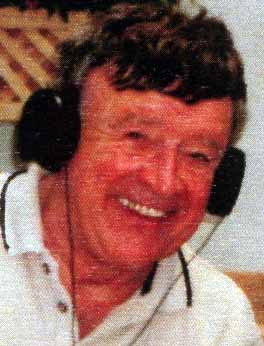 |
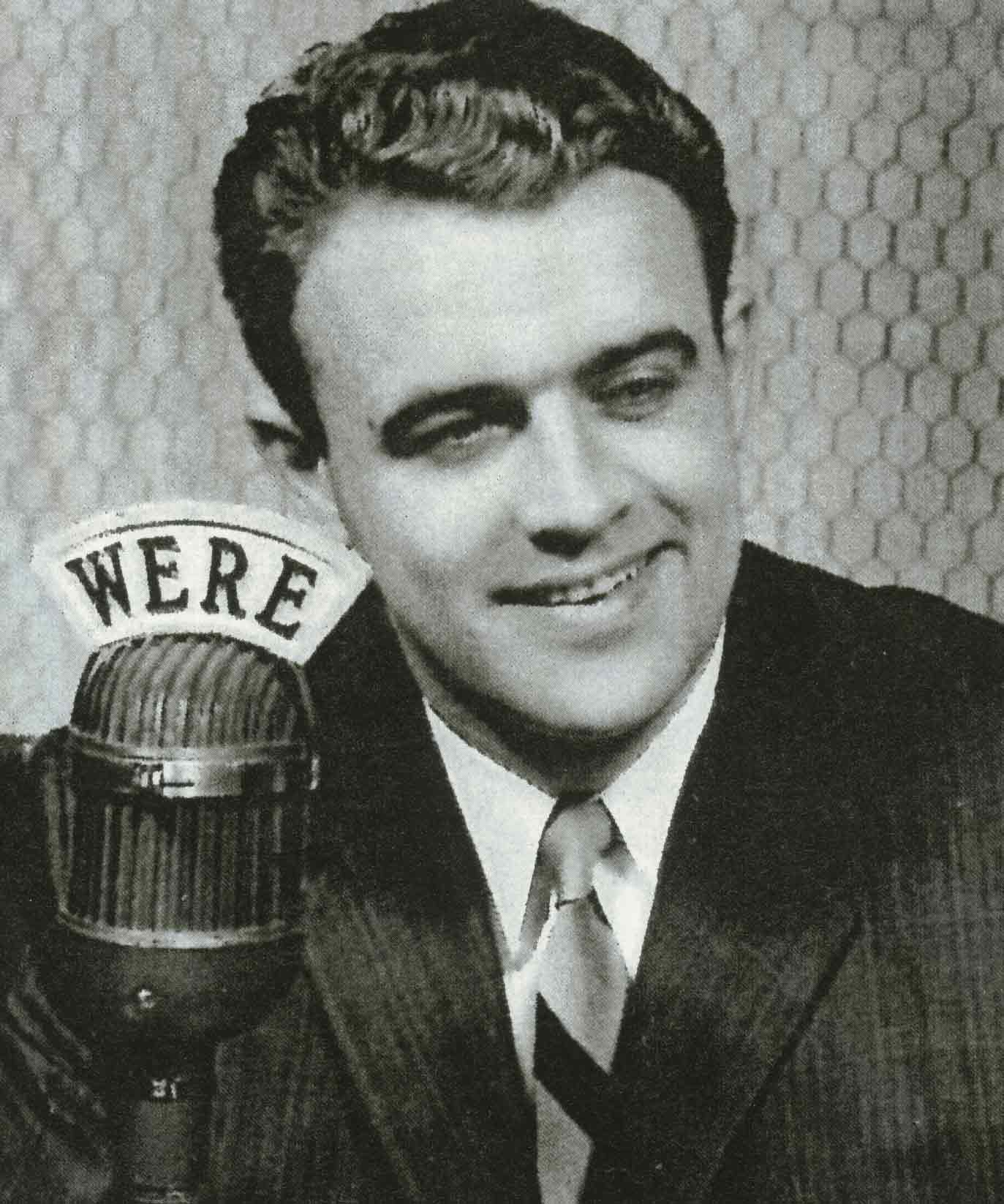 This was only meant to be a summer job, but when there were rumblings of layoffs he knew his time would be short. So in 1954, he went looking again and this time found a new home at WERE.
This was only meant to be a summer job, but when there were rumblings of layoffs he knew his time would be short. So in 1954, he went looking again and this time found a new home at WERE. 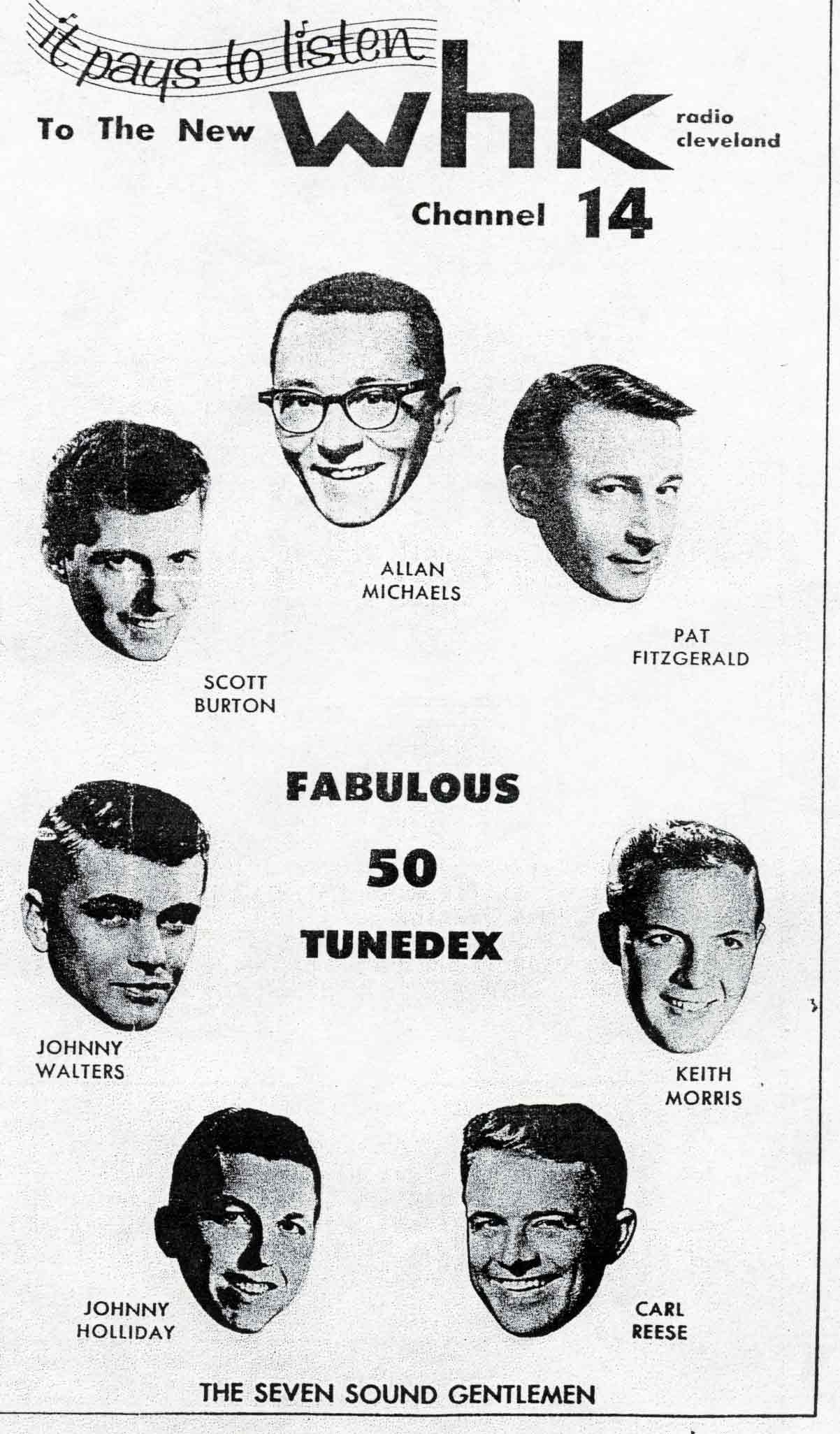 In 1961 Carl went to Metromedia, (" a fantastic organization to work for"), where he was on station WHK where he claimed the highest radio rating in Cleveland Radio History. It was during this time that he met Cleveland's own Johnny Holliday.
In 1961 Carl went to Metromedia, (" a fantastic organization to work for"), where he was on station WHK where he claimed the highest radio rating in Cleveland Radio History. It was during this time that he met Cleveland's own Johnny Holliday.
